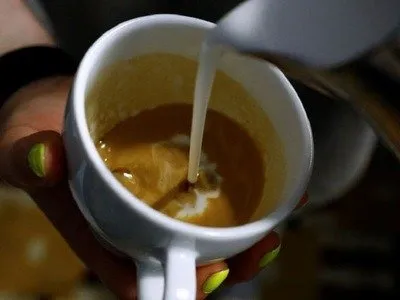People will soon use milk capsules instead of conventional milk. Milk capsules developed by scientists can easily be dissolved to prepare coffee or tea. In this way, the use of packaging products can be decreased.

Say goodbye to spilt milk, as scientists have developed dissolvable milk capsules that can be added to your tea or coffee just like sugar cubes.
The capsules not only reduce the consumption of packaging material, they are also easier to use than conventional plastic containers, researchers said.
They essentially could be compared to sugar cubes filled with milk or condensed milk, they said.
"A crystalline crust forms a type of packaging around the capsules that easily dissolves in hot liquid," said Martha Wellner, from Martin Luther University Halle- Wittenberg in Germany.
The production of the capsules is relatively simple. First a solution of milk and the desired sugar, or any other non-sweet material which gives the coating properties, is produced and placed in a mould.
As the solution cools, the excess sugar moves to the edge of the liquid, forming crystals. The milk-sugar solution fills up the interior.
Researchers conducted multiple trials to examine which materials and which cooling processes delivered the best results.
Currently there are two options for milk containers: sweetened and lightly sweetened. The researchers are still working on an unsweetened sugar free version.
The capsules can be produced in various shapes and stored at room temperature.
Once the milk has been encapsulated it can keep for at least three weeks.
"Our processes can also be used for other liquids. For example, we can also encapsulate fruit juice concentrate," said Wellner.
"We have already studied different encapsulation processes as part of other PhD projects, however with other aims in mind," said Joachim Ulrich.
He believes the new, environmentally friendly development has a lot of potential applications.
"For example, the capsules could replace the small, extremely unpractical coffee creamer packaging that is used in great quantities at conferences or on airplanes," he said.
The research was published in the journal Chemical Engineering and Technology.